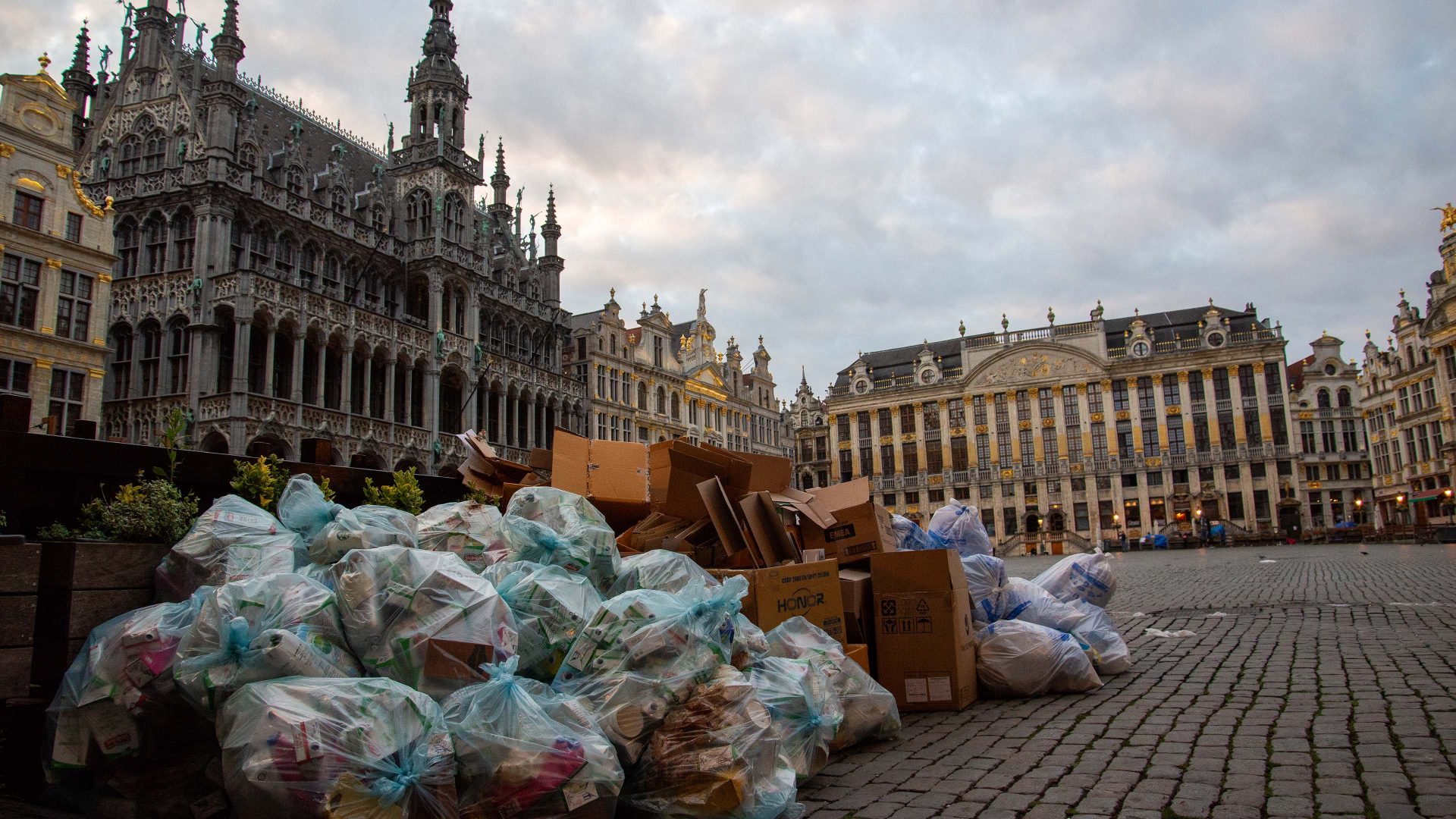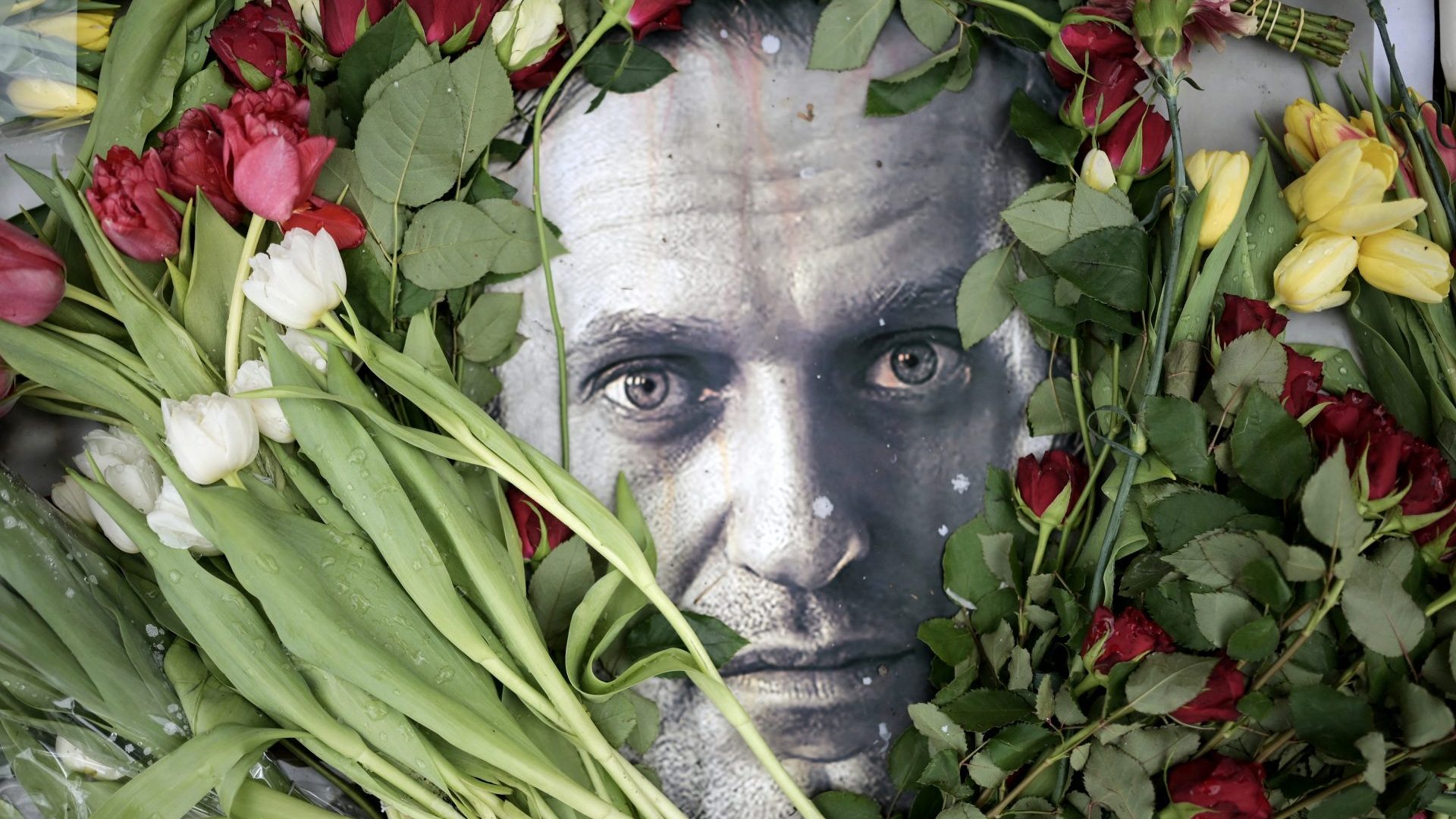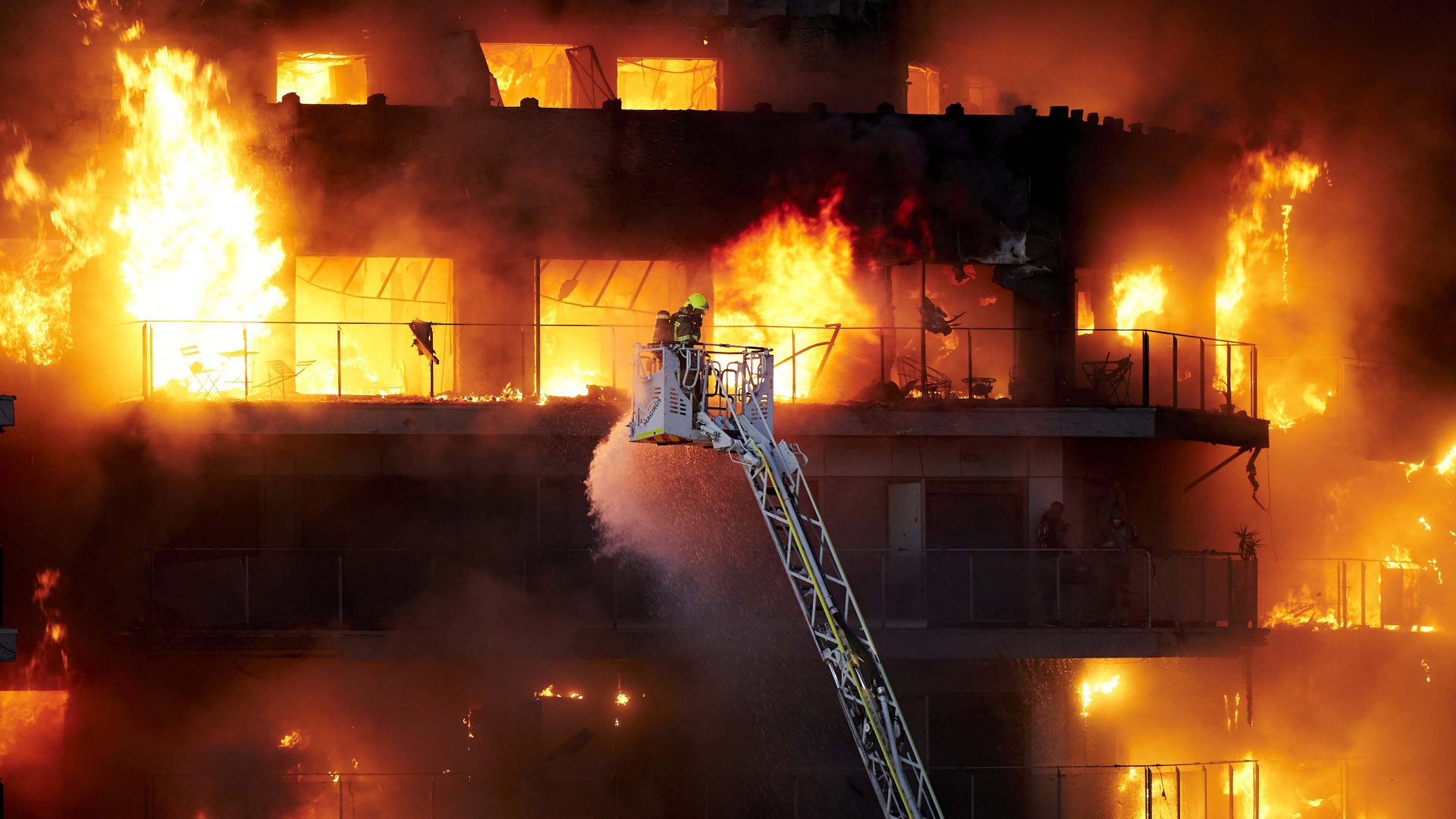For a few weeks now, I’ve been seeing the same cheesy ad plastered on buses and billboards in metro stations across Brussels. It depicts a cartoon figure of a garbage bag, hands on his hips in classic Superman pose. “Thank you”, reads a speech bubble above his head in what looks like Comic Sans, explaining that there has been a double-digit increase in food waste collection thanks to residents’ efforts.
The first time I saw it, I was mostly annoyed at its unimaginativeness and also convinced that the “double-digit” figure had been carefully selected and surely only told half the story. But with every subsequent sighting, its corny message got to me more and more.
Because for about a year I was one of a handful of people in my neighbourhood in central Brussels who didn’t toss my food waste in with the general trash. Instead, I sorted my organic waste and put it out to be collected in an orange bag kerbside once a week. Like the other eager beavers in my neighbourhood, I did this even though I didn’t… well, have to.
This being Brussels, the hardest part about the whole effort wasn’t remembering which foodstuffs could go into the orange bag and which ones couldn’t – banana skins yes; eggshells no. The problem was getting the bags collected.
As a result, over time Thursday evenings became uniquely stressful. Would the orange bag I had put there in the morning have gone? Or, would I once more have to use the city’s app to report a missed collection?
Although the app required me to submit a photo and include my exact address, it would often take two or three reports before a bag was finally collected. With every report, I used more capitals and fewer words. Eventually, I would just enter an aggressive “ORANGE BAG NOT PICKED UP” in French, precisely meeting the minimum 20-character limit imposed in the comment field.
Sometimes the bag would lie there for a whole week; other times I would find it further down my street, coffee grinds and potato peel spilling out on to the pavement.
This is how Thursday mornings ended up becoming as stressful as Thursday evenings. I would wait behind my apartment door until the coast was clear, rush down, drop the bag in front of my building as quickly as I could, hoping that no one would link me to the sad, left-behind bag that would soon be stinking out their living room.
So, when the public authority in charge of waste collection in Brussels announced that sorting organic waste would become mandatory from last May as part of a major waste collection reform, I thought: Godspeed. This would never work.
Even though Belgians are meant to be recycling champions, Brussels is a different story.
As a city, we’re not great with trash, and by that, I mean that we don’t like to recycle but we do like to litter.
I figured that most of the city’s 1.2 million inhabitants would do what they tend to do when a new waste rule kicks into effect – happily ignore it, comfortable in the knowledge that they were unlikely to ever be found out. The return on the investment seemed too distant, the daily annoyance too high.
That’s why the cynicism I initially felt about those basic ads eventually paved the way for pride; pride that we are a stand-up, foodwaste-recycling people. Now, when I encounter a row of unsightly orange bags on my path, waiting for pick-up, I almost happily skip over it. I guess there are a lot of little eager beavers in this city after all.
Linda A. Thompson is a Belgian journalist and editor living in Brussels




